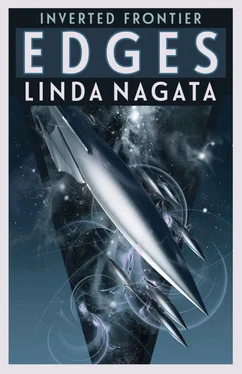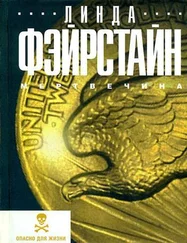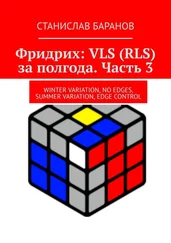Still, there was no other way to reach the courser.
She drew a deep breath, preparing herself. The ghost she’d sent to inspect Dragon remained there, but its experiences had returned to her through the arriving subminds and were now integrated. She possessed a memory of visiting the ship and of affirming everything Urban had told her. She looked forward to her return—but she was despondent too.
All or nothing , Kona had said. Clemantine felt the truth of it.
She instructed her personal DI: “After my ghost has gone, dissolve whatever is left in this room. Dissolve my husk that is aboard Silent Vigil . Then dissolve yourself.”
The DI acknowledged these instructions.
Clemantine created a new ghost—a final rendition of this phase of her life—and sent it to Dragon , but of course she still remained behind, the consciousness that abided in this body. For this version of herself there was no way out.
A flutter of panic, quickly suppressed.
Just one last act left to do.
Sleep. A command carried out through a biochemical reaction.
This life was over.
Urban’s ghost left Long Watch with transmission protocols set to ensure no copy would be left behind. The data that defined him passed first through a gate on Khonsu , the closest ship in the outrider fleet. From there, the ghost was relayed to Lam Lha , and then Artemis , and on up the chain until at last it reached the courser. There, it melded with the ghost Urban had left behind.
That moment did not produce a revelatory burst within his core persona; he experienced no high of enlightenment at the awareness of another life lived. Instead, the arrival of his ghost induced a sense of absentmindedness. Because its memories were already his own, receiving them was like waking from an artificial amnesia, the abrupt recovery of a history he’d always known, but had temporarily forgotten.
Two distinct timelines now accounted for his recent past: one in which he’d gone to find Clemantine and the other where he’d stayed aboard Dragon , waiting in suspense to learn if she would come.
She had come, and to his profound relief her visiting ghost had chosen to stay.
He turned to her, this version of her that had arrived through the data gate hours ago to undertake an inspection of Dragon . She’d sent subminds back to Long Watch bearing the memories of what she’d found, but she remained here, with him. The virtual environment of Dragon ’s library contained them in a simulation of physical existence, so that they appeared identical to their living avatars aboard Long Watch .
Clemantine watched him curiously, sensing the difference in him brought on by the melding of timelines.
“You’re back,” she said.
“Yes.” He raised a hand, touched her cheek. The simulation conveyed a sense of gentle pressure, but not her warmth, or the faint spicy scent of her skin—a poverty of detail intrinsic to the library’s virtual world.
She kissed his hand with dry, breathless lips before smiling a sly smile. This version of her bolder and more confident, already at home here.
Her first question upon arriving had been, “Is this library a copy of the one on Null Boundary ?”
“Yes,” he’d told her. “Though I’ve worked on it since. Organizing, indexing, adding new observations. And I modified the interface.”
The baseline visual architecture was deceptively simple, just a bright white path crossing a boundless, blue-gradient plain that grew darker with distance. There appeared to be nothing there, but an extra sense available to their avatars allowed them to perceive the data embedded at every point.
Clemantine had adapted easily to the new system. After she’d mastered search functions and the summoning of windows, he’d briefly introduced her to his crew of Apparatchiks, all six of them derived from his persona but diversified into distinct individuals with machinelike natures that allowed them to focus obsessively on their specialties: the Engineer, the Bio-mechanic, the Pilot, the Astronomer, the Scholar, and the Mathematician.
“It’s interesting,” she had observed, “that you utilize both a swarm of outrider ships and a swarm of personas.”
“A modular existence,” he’d agreed. “Expanded senses and an expanded intellect, all supporting my intentions.”
The Engineer was the only Apparatchik on deck now. He looked out at them from within a frameless two-dimensional window, standing with arms crossed, a flat brown background behind him. Superficially, the Engineer looked like Urban but his speech patterns, his expression, the way he carried himself, and the way he dressed—in dull brown coveralls—all distinguished him from the master copy. Within his frame he appeared at full scale, his intent gaze focused on a three-dimensional illustration of a new project, floating head-high above the library floor.
The illustration depicted a small warren of tunnels and chambers that together would suffice as a simple physical habitation where a handful of people could live. Temporary quarters, quick to grow. Clemantine had taken on the task of overseeing the design.
“I like working with the Engineer,” she mused, still eyeing Urban with that sly smile. “He’s blunt, but so calm and efficient, and he answers questions in an instant.” Her finely shaped eyebrows arched. “I wonder why you’ve always hidden this aspect of yourself?”
The Engineer snorted. “Other than my blunt speech, the qualities you’ve named are all artificial additions to my personality’s original framework.”
“Then he isn’t you?” Clemantine asked in feigned innocence.
“No more than necessary,” Urban agreed. He’d long ago grown accustomed to the incessant preening and self-regard of all the Apparatchiks, not just the Engineer, who was the most tolerable among them.
Their conceit derived from Urban’s personality, he understood that. Within the tailored personas of the Apparatchiks, conceit had become distilled and concentrated, just like the qualities that let them acquire and sustain their essential skills. Each one of them a specialist, sentient and self-aware but focused obsessively on their subjects of interest and incapable of distraction or boredom. They made for deeply irritating company but they were his crew and they supported him in his position and his ambition.
Turning to the Engineer, Clemantine spoke with exaggerated regard, “It’s clear to me now why you’re so good at what you do.”
“You’ll get bored with him,” Urban assured her. He gestured at the 3-D illustration. The actual warren was already under development, its initial growth phase begun hours earlier. “Let’s see how far we’ve gotten.”
The courser was, in some sense, a living thing—or more accurately, a mosaic of diverse lifeforms woven into one monstrous bio-mechanical organism. It had the shape of a long tapered cylinder. Deep in that cylinder’s core, banks of active tissue worked to sort and store vast quantities of material that could be extracted when needed and then recombined to build nearly anything. Around the core, and comprising the bulk of the ship, was a layer of bio-mechanical tissue interleaved with Chenzeme computational strata. Another computational layer, this one composed of millions of Chenzeme philosopher cells, wrapped the outer hull.
The philosopher cells glowed with white light. Each was effectively a tiny mechanistic mind, neither conscious nor self-aware but adaptable, capable of thought, containing memory, and perpetually engaged in simultaneous machine-sharp debates that ran in currents across the cell field. The cells formed alliances and gambled opinions, the links between them made and shattered a thousand times a second as they tested the validity of ideas and intentions, and negotiated consensus. Together the philosopher cells formed the mind of the ship, an intellectual machine specialized for the ruthless pursuit and destruction of lifeforms not of their kind—except that Urban controlled them now.
Читать дальше












